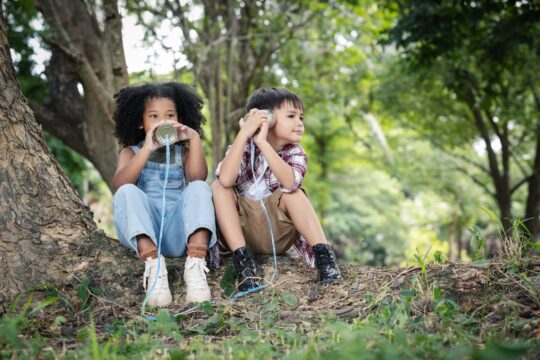Inclusive Early Years Education: Celebrating Diversity and Nurturing Every Child
Inclusive education is founded on the belief that every child, regardless of their abilities, ethnic background, socioeconomic status, or any other characteristic, deserves equal opportunities to learn and thrive. Creating an inclusive environment is not only ethically sound but also essential for building strong foundations for all children’s future success.
Benefits of Inclusive Education:
- Enhanced Learning Experience: Inclusive classrooms expose children to diverse perspectives, fostering empathy, critical thinking, and a deeper understanding of the world.
- Social Skills and Empathy: Interacting with peers of different abilities and backgrounds nurtures empathy, communication skills, and an appreciation for differences.
Creating Inclusive Learning Environments:
- Flexible Teaching Strategies: Tailor teaching strategies to accommodate different learning styles and abilities, ensuring all children can actively participate.
- Accessible Physical Spaces: Ensure your learning environment is physically accessible to all children, with considerations for mobility aids and sensory needs.
Individualized Support:
- Personalized Learning Plans: Collaborate with specialists, parents, and caregivers to develop individualized plans that cater to each child’s unique strengths and challenges.
- Collaboration with Professionals: Work with speech therapists, occupational therapists, and other specialists to provide specialized support where needed.
Promoting Positive Attitudes:
- Inclusive Language: Foster a culture of respect by using inclusive language that avoids assumptions or stereotypes related to abilities, gender, or cultural background.
- Celebrating Differences: Introduce activities that celebrate different cultures, languages, and abilities, fostering an environment of acceptance and curiosity.
Parent and Caregiver Partnership:
- Open Communication: Regularly engage with parents and caregivers to share insights, discuss goals, and collaborate on strategies for inclusive learning.
- Parent Workshops: Offer workshops that provide information on inclusive practices, helping parents support their child’s development at home.
Observation and Adaptation:
- Continuous Assessment: Continuously observe and assess children’s progress, adapting your approach to meet their evolving needs.
- Flexibility: Be prepared to adjust activities, materials, and strategies based on individual and group dynamics.
Empowering Every Child:
- Student-Led Initiatives: Encourage children to lead discussions or activities that celebrate their backgrounds, fostering a sense of pride and empowerment.
- Shared Learning: Invite children to share their unique skills, talents, and experiences, creating an environment where everyone contributes and learns from each other.
Inclusive early years education is more than just a teaching approach—it’s a philosophy that enriches the lives of all children involved. By fostering an environment of acceptance, celebrating diversity, and nurturing each child’s unique potential, you’re not only shaping their educational journey but also contributing to a more inclusive and compassionate society.



Comments are closed.